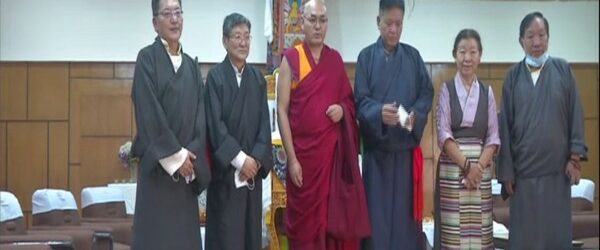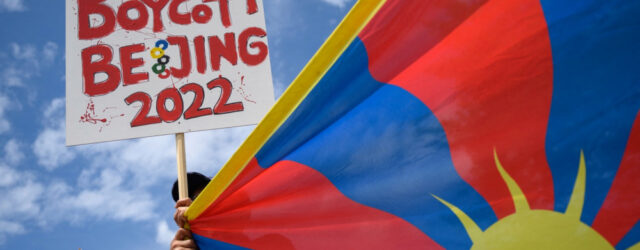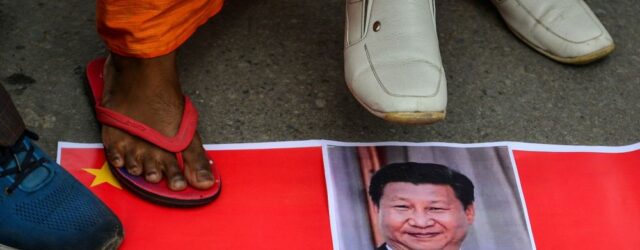China has marked the 70th anniversary of the Chinese invasion of Tibet with a call to adopt the rule of the Communist Party of China (CCP) by learning the Chinese language and culture. Chinese leader Xi Jinping asked Tibetans to learn Mandarin, the official Chinese language and demanded a “new modern socialist” Tibet, as well as the “sinicization” of the Tibetan people
The CCP is committing cultural genocide in the Himalayan region with iron hands. To ensure mass compliance, the CCP has implemented a string of new policies in the supposedly autonomous region. In Tibet, banned activities and practices now include visiting temples and the use of rosary beads, any other religious objects.
According to the Policy Research Group (POREG), Beijing “has appointed special agents in each office and community to report on Tibetan cadres and officials who break these laws.” Any person found to have engaged in any of the banned activities or practices faces “sacking from their government jobs, denial of all special entitlements, and even arrest.”
To eradicate the country’s cultural DNA, the Tibetan language is no longer being taught in schools. Instead, Mandarin is now the new language of instruction. Buddhist monks are also being persecuted and punished for fabricated crimes. According to Human Rights Watch, two monks recently received 17- and 15-year sentences, respectively, simply for arguing with the cadres during the education session.
On 10 December Go Sherab Gyatso, a Tibetan writer and educator, was sentenced to a decade behind bars. His crime? He refused to denounce the Dalai Lama. It should be noted that 10 December was Human Rights Day, a fact that added an extra layer of cruelty to the prison sentence.
China has ruled the Himalayan region since 1951 after its People’s Liberation Army (PLA) invaded and took control of Tibet which it calls a “peaceful liberation”. Human rights activists and analysts believe such moves towards cultural assimilation spell the demise of Tibet’s traditional Buddhist culture.
“Judging by developments in Tibet over the past 70 years, the Tibetans people have no cause for jubilation, as Chinese policies have turned Tibet into an open-air prison with restrictions on all aspects of Tibetan life,” says International Campaign for Tibet, the US-based organisation in a statement. “After 70 years of oppression, the only thing the Tibetan people need peaceful liberation from today is China’s brutality,” the group further added.
Beijing brands the current Dalai Lama as a dangerous separatist and instead recognizes the current Panchen Lama, put in place by the Communist Party, as the highest religious figure in Tibet. The Dalai Lama has been a symbol of the struggle of the Tibetan people for freedom, challenging the communist rule of China.
For the Chinese Communist Party (CCP), controlling the selection of the next Dalai Lama is critical for the sinicisation of Tibetan Buddhism. The project to sinicise Tibetan Buddhismhas consistently received attention from the top echelons of the party, including President Xi. “Tibetan Buddhism should be guided in adapting to China’s socialist society and should be developed in the Chinese context,” Xi has said last year.
In May this year, China had also issued an official white paper that any successor of the Dalai Lama has to be approved by Beijing. As per White Paper, it would choose the successor to the Dalai Lama through “drawing lots from the golden urn” with the candidate subject to the approval of the Communist Party China (CPC)-ruled central government.
China’s biggest fear is that the Dalai Lama may choose his successor outside Tibet within the Tibetan community in India. If the Dalai Lama finds a successor outside Tibet, the successor that China may appoint will not enjoy legitimacy and the spiritual authority required to exercise effective influence in Tibet.







